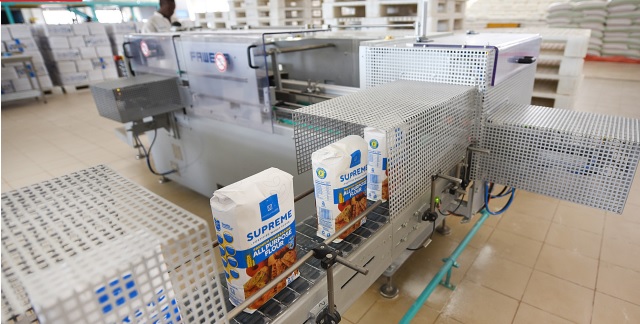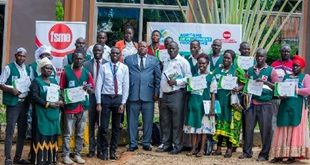
The bank’s cautiously optimistic economic outlook is partly based on the expectation that China will continue to re-open after three years of strict Covid-19 policies
Kampala, Uganda | Leo Komminoth | The African Development Bank predicts the continent’s growth will be a stronger-than-expected 4% this year, with China’s ending of strict Covid-19 curbs one of the major contributory factors highlighted in its 2023 Africa’s Macroeconomic Performance and Outlook report.
“Despite the confluence of multiple shocks, growth across all five African regions was positive in 2022- and the outlook for 2023–24 is projected to be stable,” AfDB chief economist Kevin Chika Urama said at the report’s launch.
The report says that Africa’s GDP slowed to 3.8% in 2022 from 4.8% in 2021, and Urama predicts it will stabilise at 4% over 2023–24, with a risk of a continent-wide recession close to zero.
The bank is more positive than the IMF – which announced a 3.7% growth for the continent this year in its Regional Economic Outlook published in October – and has partly based its projections on the expected recovery of China as it begins to re-open after three years of strict Covid-19 policies. Last week, China’s new foreign minister Qin Gang embarked on a five-country African tour to boost ties with some of the continent’s biggest economies, including Egypt and Ethiopia.
“China’s anticipated reopening after three years of zero-Covid policy and the stable growth outlook for Asia could bolster Africa’s growth in the medium term. An important market for Africa’s commodities, Asia accounts for about 40% of the continent’s total merchandise exports,” the report says.
Speaking during the report’s launch event, US economist Jeffrey Sachs backed the AFDB’s optimistic outlook.
“I do strongly believe that Africa can and will rise to the growth of 7% or more per year consistently in the coming decades. Building on the resiliency that we see in this report, we are going to see in the next decade a real acceleration of Africa’s sustainable development so that it will be the fastest growing part of the world economy,” he says.
Cautious optimism
But the cautious optimism was balanced by a frank assessment of the prevailing economic challenges.
“This welcome recovery and the economic resilience of African economies come with a cautious optimism,” says Akinwumi Adesina, president of the AfDB.
“Global financial conditions have tightened and are projected to remain restrictive in the near term, compounded by increased volatility in global financial markets and persistent disruptions in global supply chains. This could put further pressure on exchange rates and keep debt vulnerabilities and domestic inflation elevated, threatening food and energy security in most African countries,” he says.
Inflation – which increased to 13.8% in 2022 from 12.9% in 2021 – has disproportionately affected households in Sub-Saharan Africa due to the high shares of income they devote to food and energy expenditures.
According to the report, the poorest 10% of African households have lost on average about 0.91% of their real income per capita due to higher food prices, and 1.16% due to higher energy prices.
“High global food and energy prices have stoked a sharp fall in real household per capita income, eroding household welfare and exacerbating poverty and inequality in African countries,” it says.
However, Urama says that inflation – which reached double digits in 19 African countries in 2022 – is taking a much more positive direction as countries have tightened their monetary policies and improved domestic food supply.
*****
Source: Africa.business
 The Independent Uganda: You get the Truth we Pay the Price
The Independent Uganda: You get the Truth we Pay the Price


